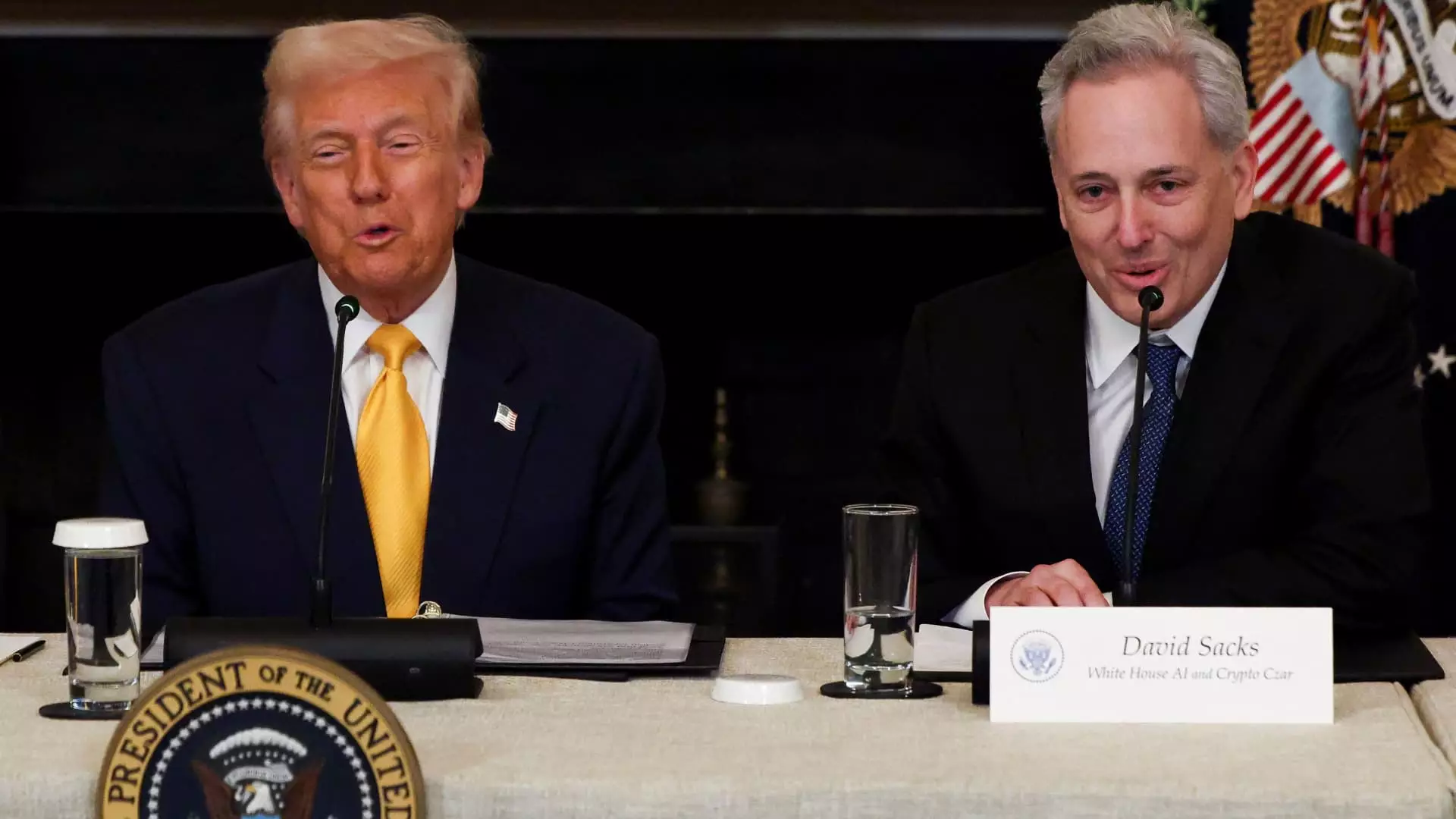In an age where financial transparency and ethical governance should be non-negotiable, David Sacks, the so-called crypto czar under the Trump administration, has found himself at the center of controversy. Recently revealed documents disclose that Sacks sold over a staggering $200 million in digital asset investments just before taking on his governmental role. While Sacks justifies his multilateral liquidation as a move to avoid any semblance of conflict, it’s impossible to ignore the magnitude of the implications—both for his credibility and for the integrity expected from public officials.
The memo outlining these transactions, dated March 5, raises essential questions about the motives behind such significant divestments. At least $85 million is directly tied to Sacks, and yet his firm, Craft Ventures, remains an investor in various digital asset portfolios. This duality paints a portrait of hypocrisy. If Sacks aimed to align with principles of accountability, his subsequent stake in other digital assets contradicts the very foundation upon which he claims to build his role in the administration.
The Hypocrisy of Capitalism and Ethics
It’s not just Sacks navigating murky ethical waters. The entire Trump administration appears entangled in a web of conflict-of-interest scandals that run much deeper than a singular character. President Trump himself has capitalized on his vast portfolio of business ventures, including real estate and cryptocurrency. On top of that, his administration now has the audacity to create a “Digital Asset Stockpile” that will reflect an administration’s reliance on controlling and regulating digital wealth.
The irony is palpable: an administration renowned for disregarding conflicts of interest now seeks to regulate the very markets from which its leaders personally profit. President Trump’s significant stake in Trump Media & Technology Group, which owns the infamous Truth Social platform, etches an even deeper stain on the already questionable ethics of the administration. By launching $TRUMP, a meme token, and controlling its supply, he creates a clear incentive for policy outcomes that directly enhance his wealth. Add to this mix the fact that Elon Musk, another major player with massive, vested interests in digital currencies, serves as one of Trump’s high-profile advisers, and we are left questioning the very integrity of governance in America.
Disregard for Public Trust
It’s hard to grasp how much of a disservice the administration is doing by prioritizing profit over ethics. With the announcement of a Strategic Bitcoin Reserve, President Trump stated that it would not include other digital currencies, opting instead to fund it with tokens obtained from criminal and civil forfeitures. If the strategy appears declarative—in that no taxpayer burden would ensue—it nonetheless dances dangerously close to prioritizing monetary gain over moral responsibility.
As Sacks points out, his resounding liquidation was intended to remove any indications of impropriety, and yet his remarks carry little weight when juxtaposed against his ongoing investment interests. Criticisms from figures like Senator Elizabeth Warren underscore the skepticism that now populates the American political terrain. What happens when public trust erodes? The implications could reverberate through the very fabric of America’s democratic structure.
Who is Watching the Watchmen?
In a troubling sign of the times, cabinet members like Commerce Secretary Howard Lutnick have emerged from obscurity to make hundreds of millions off their cryptocurrency investments, raising alarm bells about the structural systemic flaws in place. Moreover, as Sacks liquidates his direct involvement in holdings such as Bitcoin, Ethereum, and Coinbase, one must wonder: is this move merely a politicized strategy to quell dissent?
It’s imperative that regulatory oversight becomes robust, addressing the glaring contradictions present within administrative leadership who are steeped deeply in the very issues they are charged to regulate. This cannot be a passive responsibility.
A Call for Ethical Reform
The rift between personal gain and public responsibility has never been clearer, and if the United States is to progress ethically, the time for reform is now. Clear and rigorous conflict-of-interest policies are necessary to uphold the virtues of democracy in the face of rampant capitalism. The role of digital currencies isn’t merely another category of investment; it stands at a crucial intersection where accountability, governance, and ethics collide.
In a political landscape where most would impose regulations on others while comfortably reaping profits themselves from the fruits of those same regulations, we must demand a higher standard. Question it, criticize it, challenge it—because economic ethics shouldn’t have a price tag, especially when the stakes have been raised to convenience the privileged at the expense of the public good.

